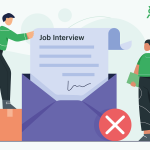Bad Resume Examples: Common Mistakes And How To Avoid Them
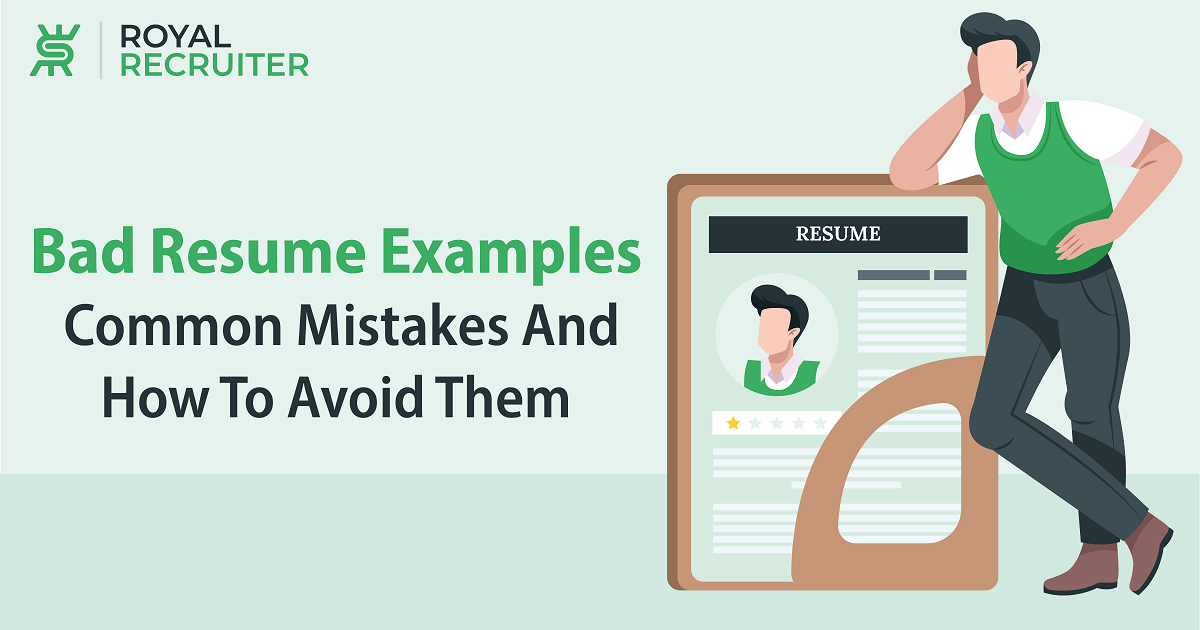
Bad resumes are one of the biggest obstacles for job seekers to land their dream job. In this article, you’ll learn about Bad Resume Examples and what contributes to bad resumes.
For job seekers, it’s important to have a polished and effective resume to showcase your qualifications and experiences to potential employers. However, many job seekers make mistakes on their resumes causing them to end up with a bad resume that can harm their chances of getting an interview or a job offer.
Let’s discover what the factors that lead to bad resumes are!
What Is A Bad Resume & It Matters
A bad resume can prevent you from getting the job you want, even if you are qualified for the position. In today’s competitive job market, it’s important to avoid bad resumes as much as possible.
It matters because a bad resume can be the reason why a job seeker is not getting the interview or job offer. A bad resume can make it difficult for an employer to understand a job seeker’s qualifications, experiences, and skills. It can also create a negative impression of the job seeker, leading the employer to believe that the job seeker is not serious about the job!
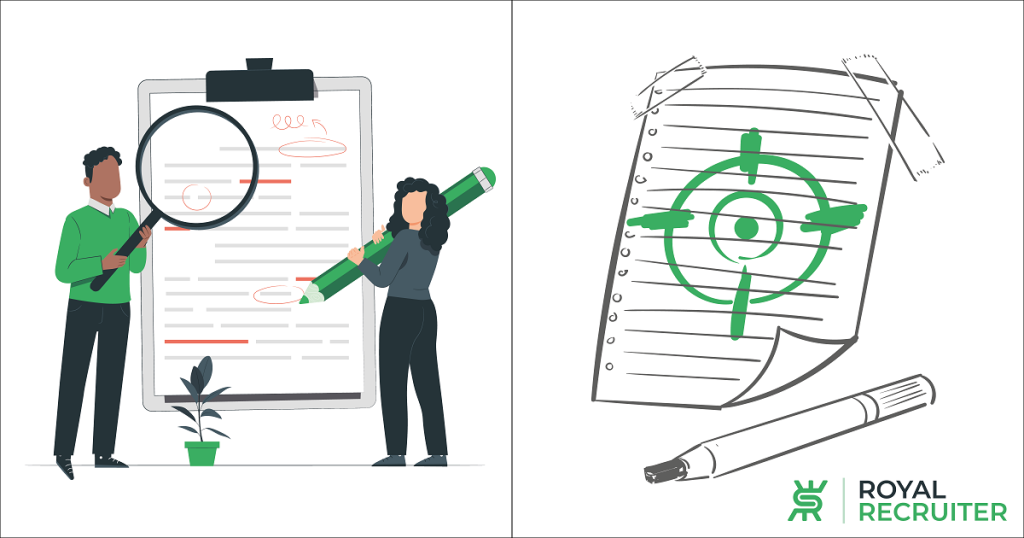
- Typos and grammatical errors
Typos and grammatical errors on a resume can make a wrong impression on potential hiring managers. It suggests a lack of attention to detail and cares in the job application process.
Common errors include misusing homophones, such as “there” instead of “their,” incorrect verb tenses, and missing punctuation.
To avoid these errors, take the time to proofread your resume several times, or have a friend or professional review it.
- Lack of focus and clarity
A resume that is not clear and focused can be hard to read and understand the motives, making it less likely that an employer will take the time to review it.
In order to make your resume more clear and more focused, use bullet points to organize information and specific language to describe your skills and experiences.
Avoid vague or general language, such as “experienced in” or “skilled in.”
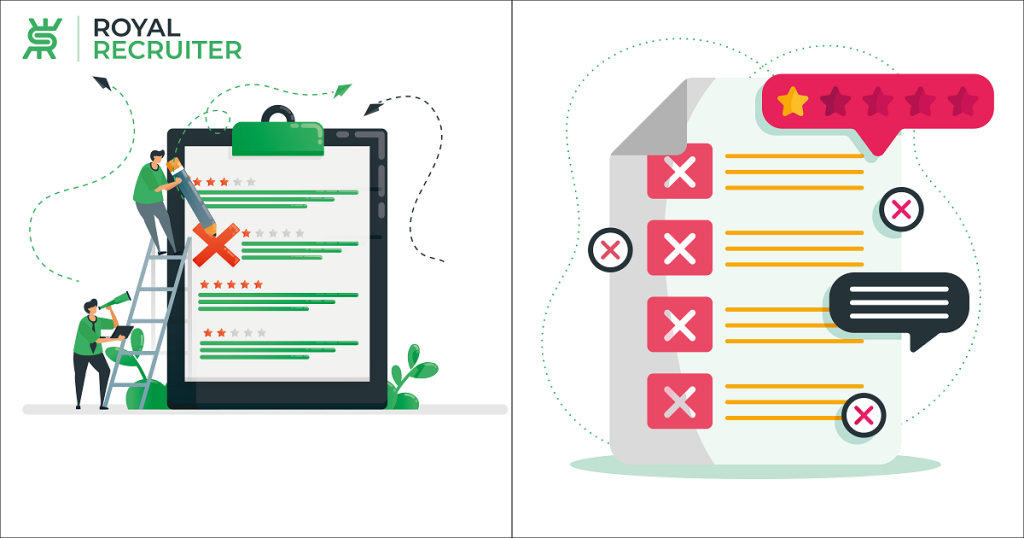
- Overemphasizing responsibilities and not highlighting accomplishments
A resume that focuses only on responsibilities can be less effective than one that highlights both responsibilities and accomplishments. Employers want to see what you’ve achieved in your previous roles, not just what your job duties were.
To turn responsibilities into accomplishments, use quantifiable data and specific results. For example, instead of just listing “managed a team,” say, “managed a team of 10 employees and increased productivity by 15%.”
- Using a generic template or format
Using a generic template can make a resume look unprofessional and uninteresting. Consider using a unique format or incorporating a personal touch to make your resume stand out.
This could include adding a professional headshot, using a color scheme, or a summary or objective statement highlighting your unique qualifications and goals instead of copying a random resume summary from the internet.
Know Some Best Tips For A Good Resume That’ll Get You Hired
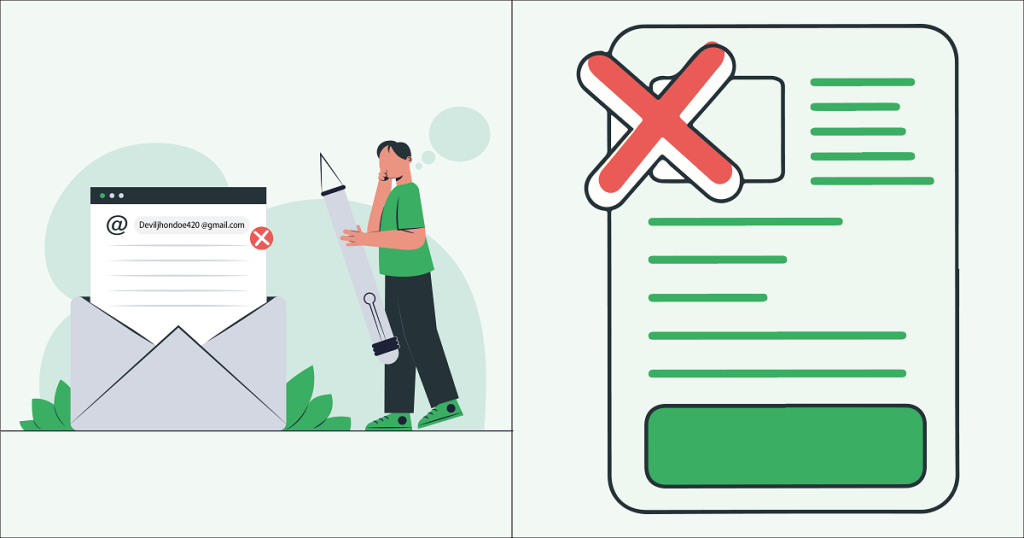
- Using an unprofessional email address
Professionalism is a big part of a resume, and an email address plays a vital role in exhibiting professionalism. That’s why you shouldn’t use unprofessional email addresses, such as “Deviljhondoe420 @gmail.com” or “jhondoeseekingjob007 @yahoo.com”, which can make a bad impression on potential employers and make them question your professionalism.
It is important to use a professional email address that includes your name. For example, “[email protected]” or “[email protected]”
- Including irrelevant information
Including irrelevant information on your resume, such as hobbies or political views, can make it appear cluttered and distract from the important information. Stick to relevant information such as your education, work experience, and skills that are relevant to the job you are applying for.
- Not tailoring your resume to the specific job
Not preparing/editing your resume for a specific job can make it appear generic and less appealing to potential employers.
Researching the job and customizing your resume to match the requirements and qualifications listed in the job posting is important. This means using the same language and keywords used in the job posting and talking about your skills and achievements related to it.
- Not including enough information
Not including enough information on your resume can make it incomplete and unimpressive. Make sure to include all relevant information, such as education, work experience, and skills. Don’t leave out any necessary information to make your resume short.
Also, consider including any relevant volunteer work, internships, or extracurricular activities.
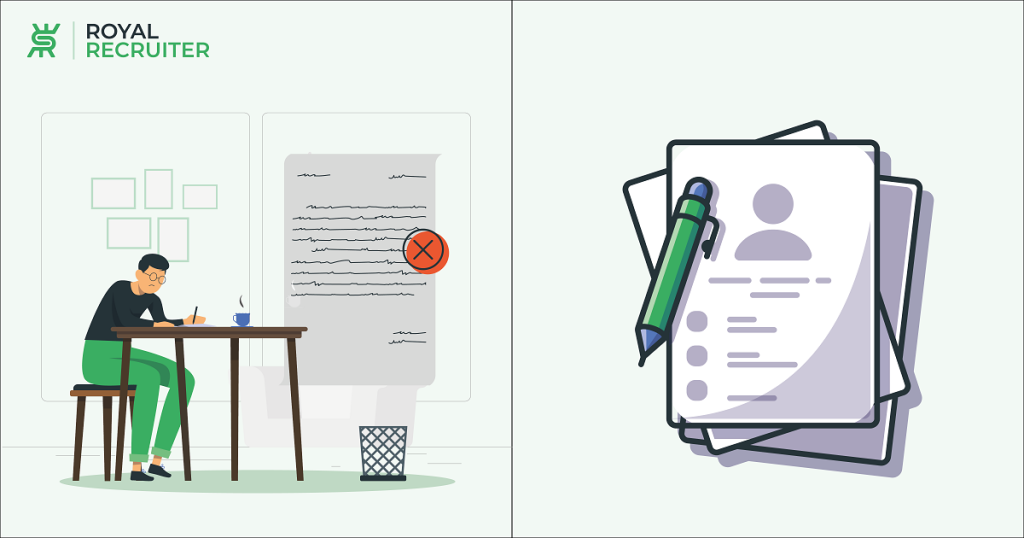
- Not keeping it up to date
Not keeping your resume up to date can make it appear outdated and less relevant to potential employers. Make sure to update your resume regularly, especially after gaining new experiences or skills.
- Not using a consistent format
Not using a consistent format can make your resume appear unorganized and unprofessional. It’s important to use a consistent font, font size, and format throughout the resume, including headings, bullet points, and indentation. This makes it easy to read and navigate for the employer.
- Having more than one page
Using more than one page can make your resume appear too long and overwhelming for employers to read. It’s important to keep your resume concise and to the point, using only one page if possible.
However, if you have a lot of relevant experience, it’s okay to expand to two pages, but make sure that the information on the second page is also relevant and entails necessary information about yourself.
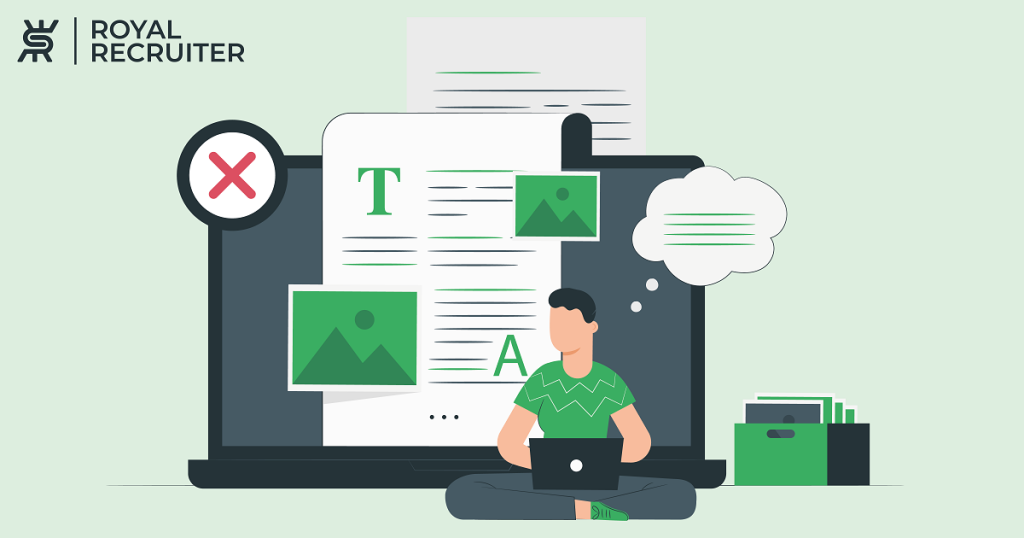
- Adding too many graphics or images
Adding too many graphics or images can make your resume look unprofessional and awful. While a little bit of visual interest is fine, it’s important to keep it simple and professional.
Avoid using too many colors, pictures, or other graphics, which can be hard to read and take away from the content of your resume.
- Using different fonts
Having different fonts can ruin a resume’s appearance. While writing a resume, use a consistent font throughout it, such as Arial or Times New Roman, and use a consistent font size.
- Including poor grades
Including poor grades on your resume can make it appear that you are not a strong candidate for the job. At the same time, it is not necessary to include all of your grades, especially if it’s low. It’s important to consider whether or not the grades you do include reflect positively on your qualifications for the job.
And nowadays, not every company wants candidates to mention their CGPA, which is a great advantage for candidates with low CGPA. So, unless the hiring managers seek it, you don’t need to mention your grades.
Visit A-Z Resume Writing Tip To Write A Stunning Resume.
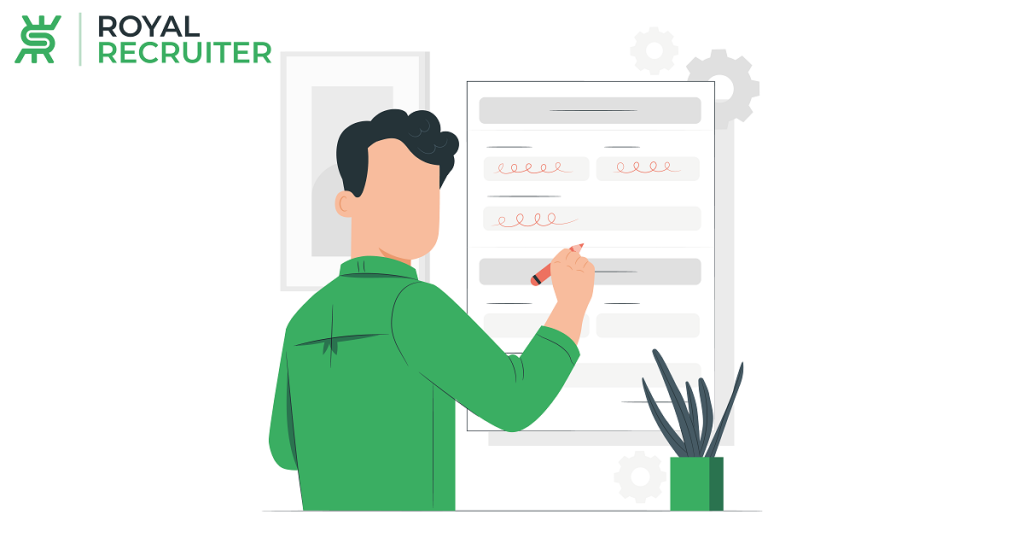
- Overusing keywords and phrases
Overusing keywords and phrases can make your resume appear unoriginal and generic. Though it’s important to use keywords and phrases relevant to the job, be sure to use them in a natural and meaningful way rather than just repeating them for the sake of passing through the applicant tracking system (ATS).
- Including too much personal and previous job information
Including too much personal information such as age, marital status, spiritual beliefs and previous job information can make your resume appear chaotic and incompetent.
Stick to relevant information such as your education, work experience, and skills relevant to the job you are applying for and don’t add personal or other information as long as you’re asked.
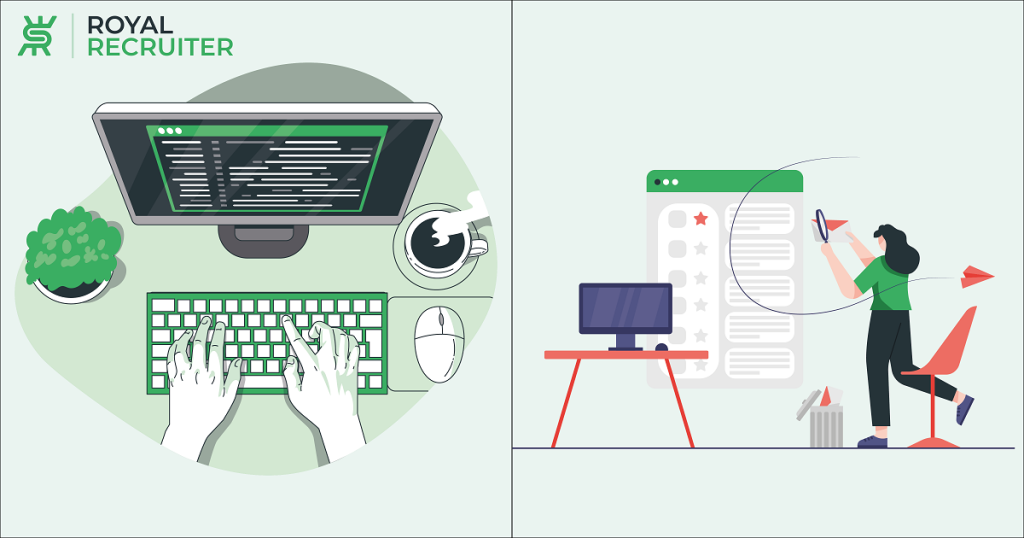
- Overusing keywords and phrases
Overusing keywords and phrases can make your resume appear unoriginal and generic. Though it’s important to use keywords and phrases relevant to the job, be sure to use them in a natural and meaningful way rather than just repeating them for the sake of passing through the applicant tracking system (ATS).
- Including too much personal and previous job information
Including too much personal information such as age, marital status, spiritual beliefs and previous job information can make your resume appear chaotic and incompetent.
Stick to relevant information such as your education, work experience, and skills relevant to the job you are applying for and don’t add personal or other information as long as you’re asked.
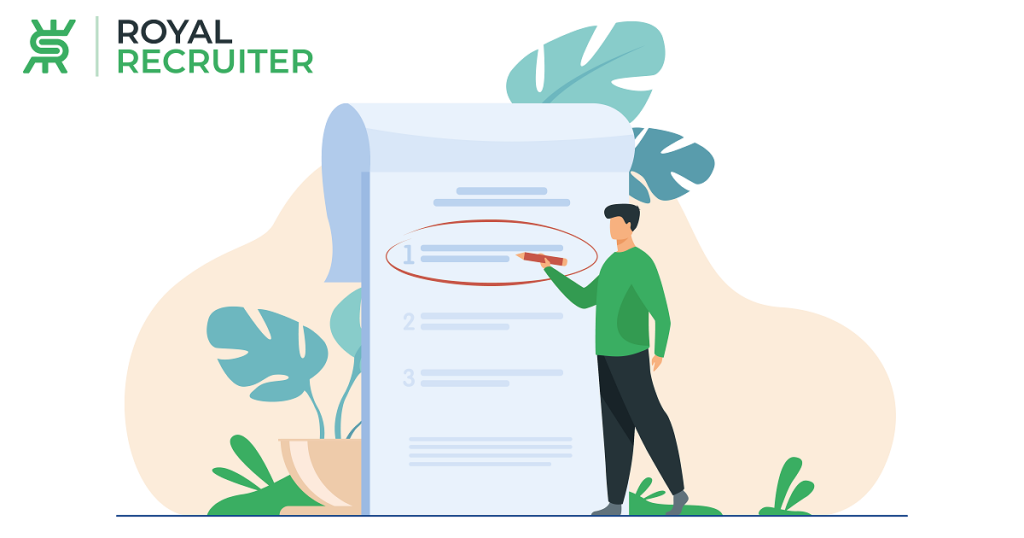
- Listing too many references (irrelevant)
Listing too many references can make your resume look scribbled. Only include relevant references, such as former supervisors or managers, who can speak to your qualifications for the job.
And if the job you’re applying for doesn’t recommend any references, then desist from adding references.
- Lying about skills and job achievements
Lying about skills and job achievements can come back to bite you during the interview or after you’ve been hired. So, be truthful and accurate in your resume because any false information can lead to termination or a tarnished reputation.

Frequently Asked Questions
How can I ensure that my resume is well-formatted?
It’s important to use a clear and easy-to-read font, use bullet points and headings to organize information, and keep the layout clean and simple. It’s also important to make sure that your resume is not too long and that the information is presented in a logical order.
What should I include in my resume?
Your resume should include your contact information, education, work experience, skills, and any relevant certifications or awards. It’s also important to make sure the information is current and relevant to the job you are applying for.
Is it a good idea to seek help from a professional resume writer?
Yes, a professional resume writer can help you ensure that your resume is well-written, well-formatted, and accustomed to the job you are applying for. They can also help you to identify and avoid common mistakes and ensure that your resume stands out among the competition.


